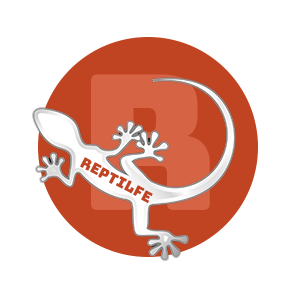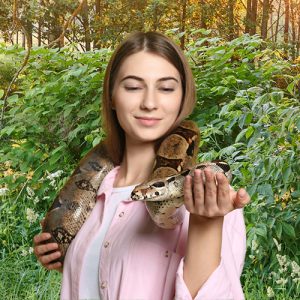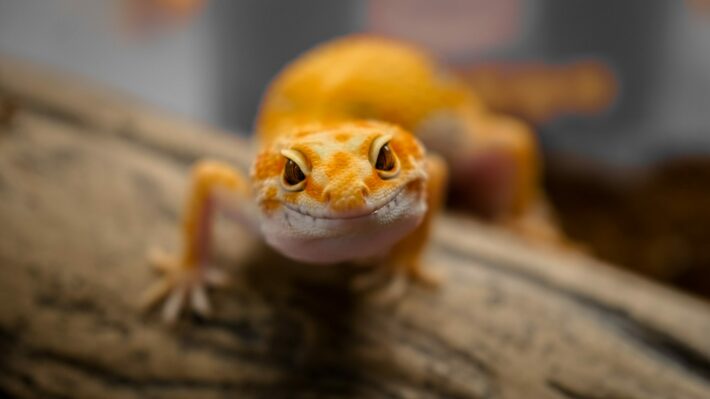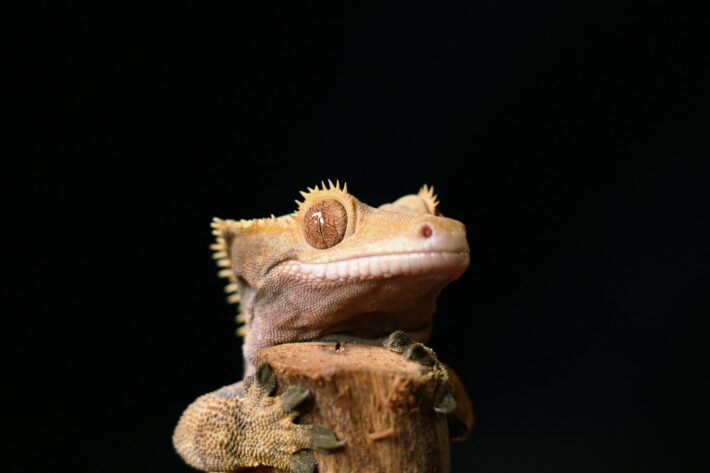If you’re considering a reptilian companion, finding the best house lizard for a pet can be an exciting journey. With a myriad of options available, it’s important to consider factors such as temperament, care requirements, and compatibility with your lifestyle.
In this comprehensive guide, we’ll explore the fascinating world of pet lizards, shedding light on popular species known for their suitability as house pets. Prepare to dive into the enchanting realm of reptiles and uncover the perfect house lizard companion that will bring joy and fascination to your daily life.
Which House Lizard Species Makes the Ideal Pet Companion?
When it comes to the ideal house lizard companion, several species stand out. The leopard gecko, known for its docile nature and ease of care, is a popular choice among reptile enthusiasts.
Another contender is the bearded dragon, renowned for its friendly temperament and ability to bond with humans. For those seeking a visually striking pet lizard, the crested gecko with its vibrant colors is an excellent option. Ultimately, the best house lizard for a pet depends on your preferences, lifestyle, and willingness to meet their specific care requirements.
What Factors Should I Consider When Choosing a House Lizard for a Pet?
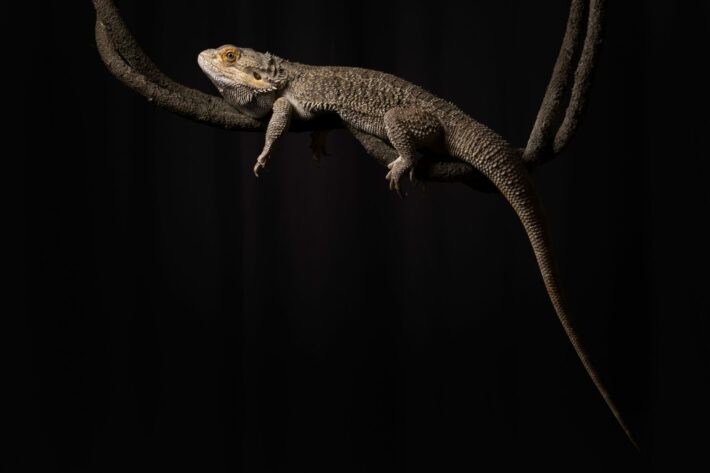
Choosing a house lizard for a pet involves considering various factors. Firstly, assess the lizard’s size and space requirements to ensure it fits your living environment. Secondly, research their temperament and handling needs to find a lizard that aligns with your preferences.
Additionally, take into account the lizard’s diet and nutritional needs, as well as their activity levels. It’s crucial to consider the level of experience required to care for a particular species. By thoroughly evaluating these factors, you can make an informed decision and find the best house lizard for your unique situation.
Are Bearded Dragons the Best House Lizard for Beginners?
Bearded dragons are often considered one of the best house lizards for beginners. They have a gentle disposition, making them easy to handle and interact with. Bearded dragons are also relatively low-maintenance, with straightforward dietary and environmental requirements.
They are hardy reptiles that tolerate a range of temperatures, and their sociable nature adds to their appeal as pets. While other lizards may suit different preferences or circumstances, bearded dragons remain a popular choice among first-time lizard owners due to their overall friendliness and adaptability.
Which House Lizard Species Has the Friendliest Temperament?
When it comes to friendliness, the blue-tongued skink stands out among house lizard species. These lizards are known for their docile nature and gentle disposition, making them excellent companions for reptile enthusiasts seeking a friendly reptile pet.
Blue-tongued skinks often develop a bond with their owners and are generally relaxed and tolerant of handling. However, it’s important to note that individual temperament can still vary within each species, so proper handling and socialization from an early age are essential for fostering a friendly and sociable bond.
What Are the Care Requirements for Keeping a House Gecko as a Pet?
House geckos, such as the popular leopard gecko, have specific care requirements that are important to meet. They thrive in environments with proper temperature gradients and humidity levels. House geckos also require a suitable diet consisting of live insects and occasional supplementation.
Providing them with appropriate hiding spots and a secure enclosure is crucial for their well-being. Additionally, regular cleaning of their habitat and maintaining good hygiene are essential. By understanding and meeting these care requirements, you can ensure the health and happiness of your house gecko as a beloved pet.
Can a House Lizard Fit Well into a Small Living Space?
Yes, certain house lizard species can adapt well to smaller living spaces. Geckos, such as the leopard gecko or crested gecko, are particularly suited for smaller enclosures due to their size and low activity levels.
These lizards don’t require large territories and can thrive in appropriately sized tanks or vivariums. It’s important to provide them with adequate hiding spots, suitable temperatures, and a balanced diet. By optimizing their habitat within the available space, you can successfully accommodate a house lizard as a pet even in smaller living environments.
Are Crested Geckos Suitable Lizards for Families with Children?
Crested geckos are often a great choice for families with children. They have a gentle temperament and tolerate handling well, making them suitable pets for kids to interact with under adult supervision. Crested geckos are generally low-maintenance, requiring a simple diet of commercially available powdered food and occasional live insects.
Their vibrant colors and unique appearance also make them visually appealing to children. However, it’s essential to educate and supervise children on proper handling techniques to ensure the well-being of both the gecko and the child.
What House Lizard Species Is Known for Its Vibrant Colors?
The bearded dragon is a house lizard species that is not only renowned for its friendly nature but also for its striking colors. These lizards display vibrant hues such as oranges, yellows, and reds, which can vary depending on the specific bearded dragon morph.
Their eye-catching appearance adds a touch of beauty to any reptile enthusiast’s collection. The vivid colors of bearded dragons make them visually appealing and highly sought after as pet lizards, allowing owners to enjoy their captivating beauty while benefiting from their sociable and engaging personalities.
Are House Lizards with Longer Lifespans a Better Option for Pet Ownership?
House lizards with longer lifespans offer the benefit of extended companionship and lasting bonds with their owners. Lizards such as the blue-tongued skink or bearded dragon can live for over a decade with proper care. While longer lifespans can be desirable for some pet owners, it’s essential to consider the commitment and responsibility that comes with it.
Providing long-term care, including a suitable habitat, diet, and regular veterinary check-ups, is crucial. It’s important to assess your ability to meet the demands of a lizard’s lifespan before making a decision.
Can I Train a House Lizard to Be Hand-Tamed and Friendly?
While house lizards aren’t as trainable as some other pets, they can be hand-tamed and become comfortable with human interaction. Consistent and patient handling from an early age can help house lizards develop trust and familiarity with their owners.
Offering treats and positive reinforcement can also encourage positive associations with human contact. However, it’s important to remember that lizards have their own instincts and limitations, and it’s crucial to respect their boundaries and handle them gently. With time, effort, and a calm approach, you can establish a bond of trust with your house lizard.
What House Lizard Species Requires the Least Maintenance?
Among the house lizard species, leopard geckos are known for their low-maintenance requirements. These lizards are relatively easy to care for, making them a popular choice among reptile enthusiasts.
Leopard geckos have simple dietary needs and do not require complex lighting setups. They have a relatively low activity level and do not need as much space compared to other larger lizard species. Despite their low-maintenance nature, it’s still important to provide them with a suitable habitat, a balanced diet, and regular monitoring of their health and well-being.
Are House Lizards with Nocturnal Habits Suitable for Pet Owners?
House lizards with nocturnal habits, such as the leopard gecko, can indeed be suitable for pet owners. These lizards are most active during the night, which can align well with the schedules of individuals who work during the day.
Their nocturnal behavior means they require special lighting and heating setups to simulate their natural environment. While they may not be as active during daylight hours, leopard geckos still make engaging and fascinating pets, offering owners the opportunity to observe their unique behaviors and interactions during the evening hours.
This table provides valuable information about different house lizard species with nocturnal habits and their suitability for pet owners.
| House Lizard Species | Nocturnal Behavior | Suitability for Pet Owners |
|---|---|---|
| Leopard Gecko | Active at night; sleep during the day | Well-suited for pet owners who work during the day and can observe their lizard’s activities in the evening |
| Fat-Tailed Gecko | Nocturnal; prefers low-light conditions | Ideal for pet owners who enjoy observing their lizard’s nighttime behaviors and can provide a suitable dimly lit enclosure |
| African Fat-Tailed Gecko | Primarily nocturnal; less active during the day | Great for pet owners who prefer a lizard that is more active and engaging during the night |
| Komodo Dragon | Active during the day and night | Not suitable for pet owners seeking a strictly nocturnal lizard; requires large enclosures and specialized care |
| Madagascar Ground Gecko | Nocturnal; burrows during the day | Well-suited for pet owners who enjoy observing their lizard’s burrowing behavior and are available to interact during the evening hours |
Are House Lizards More Suited to Indoor or Outdoor Enclosures?
House lizards are generally better suited to indoor enclosures, as they require controlled environments to thrive. Indoor enclosures offer better temperature and humidity regulation, protecting lizards from extreme weather conditions.
Additionally, indoor setups minimize the risk of exposure to predators and diseases that can affect outdoor reptiles. However, certain species, such as certain types of skinks or anoles, may benefit from supervised outdoor time in appropriate enclosures. It’s important to research the specific needs of your chosen house lizard species to determine the best enclosure type for their overall well-being.
Which House Lizard Species Is Considered Low-Maintenance for First-Time Owners?
Leopard geckos are often considered a low-maintenance house lizard species suitable for first-time owners. They have relatively simple care requirements, including a diet of live insects and a properly heated and decorated enclosure. Leopard geckos have a docile nature and are generally easy to handle.
Their hardy nature and ability to tolerate a range of temperatures also make them forgiving for beginners who are still learning the ropes of reptile care. With proper research, preparation, and ongoing attention to their needs, leopard geckos can provide a rewarding pet ownership experience for beginners.
Can House Lizards Be Kept Together in the Same Enclosure?
While some house lizard species can cohabitate, it’s generally recommended to avoid keeping multiple lizards together in the same enclosure. Lizards can be territorial and may exhibit aggression or dominant behaviors when forced to share space.
Additionally, different species may have different care requirements, making it challenging to provide optimal conditions for each individual. There’s also a risk of spreading diseases or parasites between lizards in close quarters. It’s best to provide each house lizard with its own appropriately sized and furnished enclosure to ensure their well-being and minimize potential conflicts.
In conclusion
Finding the best house lizard for a pet involves considering various factors such as temperament, care requirements, and compatibility with your lifestyle. The choice of a suitable house lizard companion can bring joy, fascination, and companionship to your daily life. From the friendly and low-maintenance bearded dragons to the visually striking crested geckos, there are diverse options available for reptile enthusiasts.
Whether you opt for a nocturnal house lizard or one with vibrant colors, proper research, preparation, and commitment are essential for providing a safe and thriving environment for your chosen pet lizard. Embrace the enchanting world of house lizards and embark on a rewarding journey of reptile ownership.
